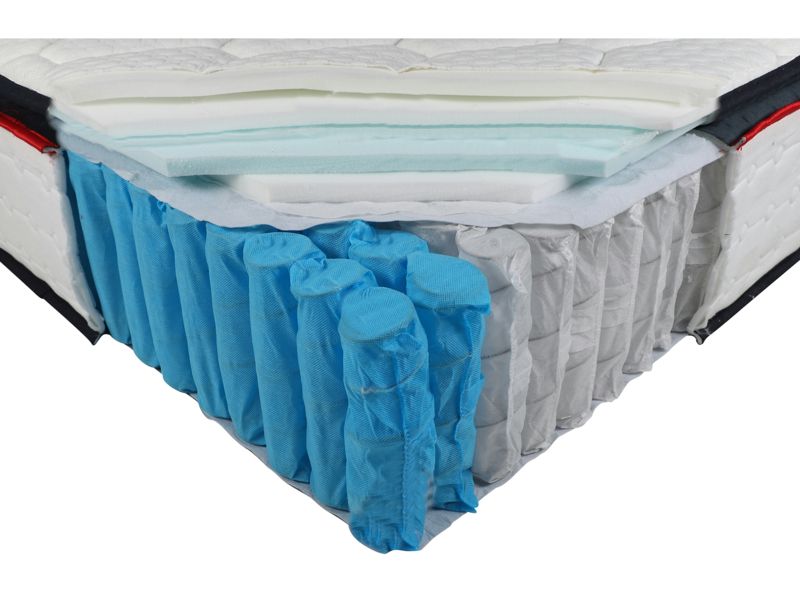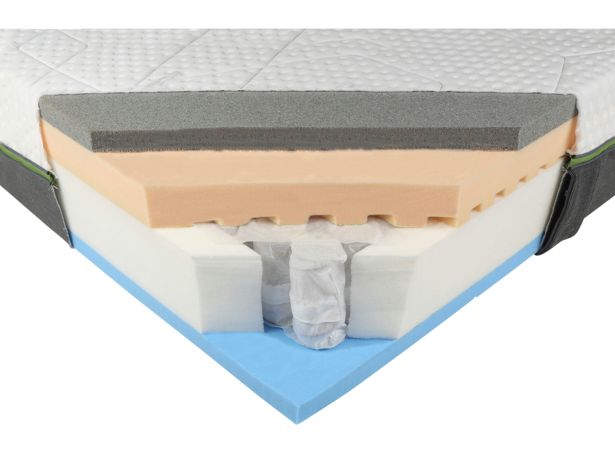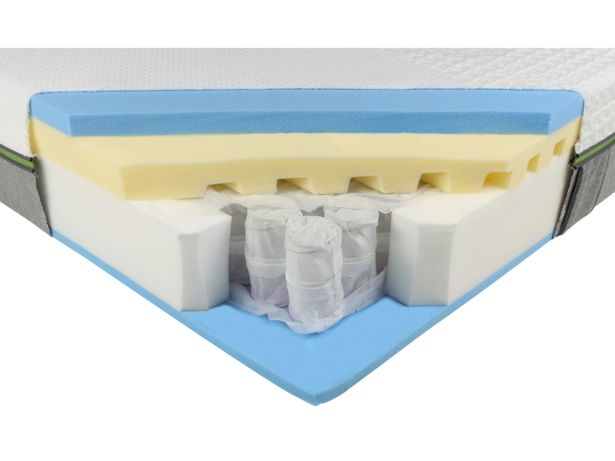By clicking a retailer link you consent to third-party cookies that track your onward journey. If you make a purchase, Which? will receive an affiliate commission, which supports our mission to be the UK's consumer champion.
How to dispose of a mattress

Buying a new mattress will set you back anywhere between a few hundred and a few thousand pounds, so you probably don't want to part with even more money to dispose of your old one.
But finding a way to dispose of a mattress free of charge is no mean feat, especially if you want to do so responsibly.
The National Bed Federation (NBF) estimates that the mattress recycling rate in 2021 was around 24% – that's the percentage of mattresses sent for recycling – according to its latest report.
Far too many mattresses – many of which could have been recycled – still end up in landfill sites. Keep reading for expert advice on how long your mattress should last, and how to get rid of it once it’s past its best.
If you still need to select a new mattress, read our round up of the best mattresses.
How to get rid of a mattress

You have many different options for disposing of your mattress, but some of them are expensive, environmentally damaging and even illegal.
When we asked Which? members about the methods they'd used to get rid of an old mattress in the past, they offered various solutions, including council collection, paying a specialist company and donating it to charity.
| Method | % of Which? members who used this disposal method |
|---|---|
| Collected by company delivering the replacement | 51% |
| I took it to the tip | 19% |
| Collected by a specialist disposal company | 13% |
| I gave it to charity | 6% |
| Don't know | 5% |
| Other (for example, used in a different room, I still have it) | 2% |
| Left it in a skip | 1% |
Based on a survey of 1,068 Which? members conducted in February 2023.
Pay a company to pick up your old mattress
More than half of Which? members disposed of their last mattress by having it collected by the company delivering a replacement, according to 1,068 respondents of our survey in February 2023.
That’s perhaps not surprising, given the number of major high street retailers now offering this service. Argos, for example, offers to collect and recycle your old mattress for a fee of £30 when you buy a new mattress. John Lewis offers a similar service, charging new mattress customers a fee of £29.95 to responsibly dispose of their old mattress. Ikea's remove-and-recycle service is still suspended.
Bed-in-a-box mattress brands such as Emma and Eve also offer an old-mattress collection service for customers.
Getting the retailer to collect your old mattress when it delivers the new one is only convenient if you’re sure that the new mattress is the right one for you. Otherwise, you’ll be left without anything to sleep on if you decide to return it. If you’re in any doubt, specialist mattress companies such as Collect Your Old Bed can pick up and dispose of your old mattress at a time of your choosing.
Whatever method you choose, it’s always worth making sure the company you use actually recycles the mattress.
We’d also recommend checking how much your local council charges before paying for one of these services, to avoid paying over the odds.
See our list of the best mattress shops for more information.
Pay your local council for a bulky waste collection
Most local councils offer a collection and disposal service for bulky waste, which includes beds and mattresses. But it can be surprisingly expensive, and there’s often no guarantee your mattress won’t end up in landfill – many local authorities say they will recycle some or all of the waste, where possible.
Some councils, such as Liverpool City Council and a number of London boroughs, offer free bulky waste collection, but they’re very much in the minority. Most councils charge a fee to collect bulky waste, and it can be expensive – Argyll and Bute Council charge a whopping £80.90 for a 10-minute bulky waste collection (and potentially more if it takes longer), Wealden District Council charges around £62 for three items of bulky waste. The London Borough of Richmond charges £76 full price, per collection (up to five items), at time of writing.
If you live in England or Wales, you can find out how much your council will charge for bulky waste disposal by typing your postcode into the gov.uk website. If you live in Scotland or Northern Ireland, go to your council’s website and search for bulky waste disposal.
Having the council collect your mattress from your home can be convenient, but make sure you read the terms and conditions carefully. Many councils charge a different price depending on the number of bulky items they’ll be collecting, but bear in mind that a bed frame and a mattress will likely count as two items. And items will often only be collected if they’re left in a designated spot.
Take your old mattress to the local tip
Your local tip or refuse centre will probably take your old mattress, but to get it there you’ll need a vehicle that's big enough to fit a mattress in. If you have a car but your boot is too small to fit the mattress in when flat, try rolling it up and fastening it with rope.
But that's a lot of effort to go to when the mattress might end up in landfill anyway. You might decide to make the extra effort of taking it to a dedicated recycling facility, or to pay for the convenience of the council or a specialist disposal company to collect it from your home.
Donate your old mattress to charity
If your mattress is still in good condition, you might consider donating it to charity, or giving it away for free. That way you can help someone in need, as well as ensuring it doesn't end up in landfill.
Organisations such as the British Heart Foundation, British Red Cross and Emmaus will resell your mattress and put the proceeds towards a good cause. Several other charities also accept mattress donations, so if there's a cause you particularly want to support, it’s worth contacting the charity direct.
Generally, these organisations will collect your mattress free of charge, although they might request that you send images first to prove it's of acceptable quality. Any organisation accepting a mattress donation will expect it to be fit for use, clean and with a fire label intact. It's always best to check directly with the organisation first.
Another way to ensure your mattress stays out of landfill is to use a non-profit initiative such as Freecycle, or your local equivalent group, which can put you in touch with someone in the local area looking for a free second-hand mattress.
Other ways to dispose of a mattress
If you haven't had your mattress long, you may be able to return it. Find out how to return a mattress.
Other methods of mattress disposal are damaging to the environment, antisocial and/or illegal.
Don't burn your mattress. Not only is a mattress fire hard to control, but the fumes released by the fire could also be damaging to both you and the environment.
You can get rid of your old mattress using a skip, but you'll be contributing to the landfill problem.
Of course, you should never dispose of your mattress by putting it in someone else’s skip or, worse, simply abandoning it at the side of the road. As well as being environmentally harmful, fly tipping is illegal and can result in a large fine.
Now that you know how to dispose of your old mattress, read our mattress reviews to help you replace it.
Can you recycle a mattress?

At the very least, some parts of your mattress will be recyclable, and it’s possible that all of it will be.
While mattress recycling is relatively labour-intensive, more and more facilities capable of doing it are springing up around the UK. These facilities will break down your mattress into its recyclable components – springs can be melted down and remade into new metal products, while synthetic layers such as foam can either be used to make carpet underlay or sent to a plant where the waste can be converted into energy.
Aside from taking your old mattress to your nearest recycling centre yourself, the best way to ensure it is recycled is to pay for it to be collected. Whether you use the local council, the company delivering your new mattress or a specialist mattress removal company, make sure it is clearly stated that the mattress will be recycled. Otherwise, it’s probably best to assume that it won’t be.
How often should you change your mattress?

If you can’t remember how many years you’ve had your mattress, the chances are it’s time for a new one. Even if it still feels comfortable, it’s likely to be less supportive and hygienic than when it was new.
It's recommended to replace your mattress around every 8-10 years, after which time it will have been subjected to more than 20,000 hours of use. That’s the equivalent of 2,555 nights, which is a lot when you consider that adults lose an average of half a pint of fluid each night, and shed 1lb of dead skin cells each year.
If reading that makes you shudder, head over to our guide on to how to clean a mattress.
How long should a mattress last?
Nearly a quarter of Which? members expect a new mattress to last more than a decade, according to a survey of 1,098 members in March 2021. That's pretty optimistic, though. About a third said they'd expect it to last 8-10 years, which is about right.
Our durability tests reveal that the best mattresses can last up to a decade without softening, sagging or becoming less supportive. As long as you buy a good mattress and clean it regularly, you might be able to eke out an extra few years.
Buying a new bed frame won't necessarily extend the life of your new mattress, but be aware that using a mattress with an inappropriate bed frame might invalidate its warranty. Take a look at our tips on how to buy the best bed to find out more.
But the bottom line is: if your mattress is no longer supporting you, or it's more than a decade old, it's time to replace it.
Our mattress reviews will help you find the perfect new mattress.
This article uses insights from the Which? Connect panel, collected from research activities with our members. Find out how to get involved



